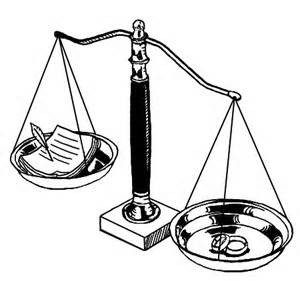 The Marriage Tribunal of the Diocese of St. Petersburg serves to study marriages that have ended in divorce. At the Tribunal we look at the process of petitioning for nullity as a spiritual journey. Recalling the circumstances that led to your marriage, recounting the difficult moments of your life together and naming the reasons for the eventual divorce can be painful. You are encouraged to look at the spiritual good that will come from a careful examination of your prior union. The goal of these studies is to determine if a particular marriage may be declared invalid according to Canon Law. It is our wish that this be a healing process and will bring you resolution to your prior marriage.
The Marriage Tribunal of the Diocese of St. Petersburg serves to study marriages that have ended in divorce. At the Tribunal we look at the process of petitioning for nullity as a spiritual journey. Recalling the circumstances that led to your marriage, recounting the difficult moments of your life together and naming the reasons for the eventual divorce can be painful. You are encouraged to look at the spiritual good that will come from a careful examination of your prior union. The goal of these studies is to determine if a particular marriage may be declared invalid according to Canon Law. It is our wish that this be a healing process and will bring you resolution to your prior marriage.
Central to the responsibility is proclaiming the sanctity and permanence of marriage. While carefully protecting the teaching of Jesus on marriage and its indissolubility, the Church also recognizes that many marriages today end in the tragedy of divorce. Yet, for many of these people their faith and their Church remain important to them. Nor does the Church abandon them.
In its pastoral concern, the Church provides an ecclesiastical tribunal whose function is to evaluate the validity of the failed marriage in the light of Scripture, Tradition, and Church law. In many cases, the Church is able to grant a Decree of Nullity (annulment). This is not a “Catholic style” divorce. We are looking to see what was lacking when the couple married that did not make the marriage a sacramental bond. A valid civil marriage existed and the children from that marriage are legitimate. We are looking into whether the union fulfilled the requirements of marriage according to the teachings of the Catholic Church. This process helps heal the anger and disappointment with one’s self and with one’s former spouse. It often brings closure to the hurtful memories. It frees a Catholic to marry again or to have a second marriage convalidated by the Church, thus restoring the Catholic to the full sacramental life of the Church. If you do not remarry you may still receive the sacraments. As far as the Church is concerned you are still married even if you have obtained a civil divorce. According to church law, your marriage is valid until it is proven otherwise, and a Decree of Nullity is granted.
Remembering that the ministry of Jesus was one of healing and reconciliation, the Tribunal is ever mindful of its call to continue that ministry to all who seek its help. Please explore the Tribunal webpages, which gives an overview of annulment types and the annulment process. If the terminology confuses you, there is a page to explain terms in simple language. There is also a page of Frequently Asked Questions. When you are ready to begin the annulment process, please contact your local parish, priest, deacon or lay minister. They can assist you in determining the proper forms and will act as your advocate.
While the process of seeking a decree of nullity can seem overwhelming, be not afraid! If you engage it with prayer, honesty and genuine faith, the experience will prove very healing. The Tribunal staff is here to help the faithful arrive at a just decision about their marriage. The Tribunal deals with people exercising the greatest of confidentiality, as well as with compassion and understanding.
Introduction to the Tribunal and Its Cases

